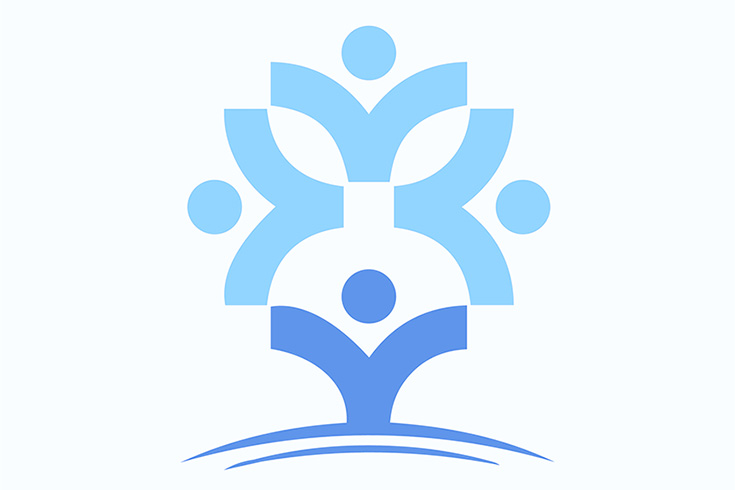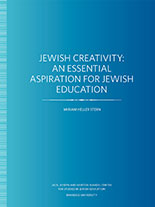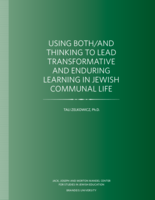Senior Fellows Publications
 The Mandel Center Senior Fellows Program brings together Jewish educational practitioners who are currently serving in leadership roles in North American Jewish educational settings and institutions. The program gives these leaders an opportunity to cultivate a sense of self as scholar-practitioners and contribute to the advancement of research and scholarship about Jewish education. Each monograph in this series is the culminating thought piece from a Senior Fellow.
The Mandel Center Senior Fellows Program brings together Jewish educational practitioners who are currently serving in leadership roles in North American Jewish educational settings and institutions. The program gives these leaders an opportunity to cultivate a sense of self as scholar-practitioners and contribute to the advancement of research and scholarship about Jewish education. Each monograph in this series is the culminating thought piece from a Senior Fellow.
Publications

by Miriam Heller Stern, PhD
Habits of creative thinking have sustained the Jewish people through centuries of crisis and opportunity. How might the enterprise of Jewish education reclaim and teach creativity? Weaving together a wide range of theory and research, including affective neuroscience, Jewish philosophy and education, and studies of creativity and arts education, I construct a definition of Jewish creativity that can be pursued across the Jewish educational ecosystem. Building on this historical and philosophical rationale and putting the definition into practice, I suggest four facets of creativity—interpreting, curating, making, and collaborating—that I believe are essential for ensuring a future where Jews can continue to negotiate the conditions of their day, while boldly creating the future they want to see. From the conceptual discussion to the applications described, I hope that this essay will inspire conversation and generate new ideas across diverse stakeholders in Jewish education, as we consider current and future priorities and practices for the field.

by Tali Zelkowicz, PhD
It has become a widely accepted fact that across every age and stage, the field of Jewish education is split between the sub-fields of “formal” versus “informal” (also known as “experiential”) education, or between “education” versus “engagement.” It is time to wonder why and how we got here. By analyzing the ways that we tend to talk about learning in Jewish life, we can see how this bifurcation is not helping but hindering us. But when we dig below the surface of the debates and competition for resources, we are able to uncover two deeper principles of learning that, when combined, can result in Jewish learning that is both transformative and enduring (useful and empowering in one’s life, well beyond the learning experience), whether we are on mountain, by a lake, in a classroom, or a board room.
Supplement A: Clarifying Your Vision for Jewish Communal Life and Learning: A Self-Inventory Exercise
Supplement B: What Counts as Great (Jewish) Learning?
Supplement C: Attempting to Connect the Dots between the Fields of Education and Facilitation: What They Share and Where they Differ